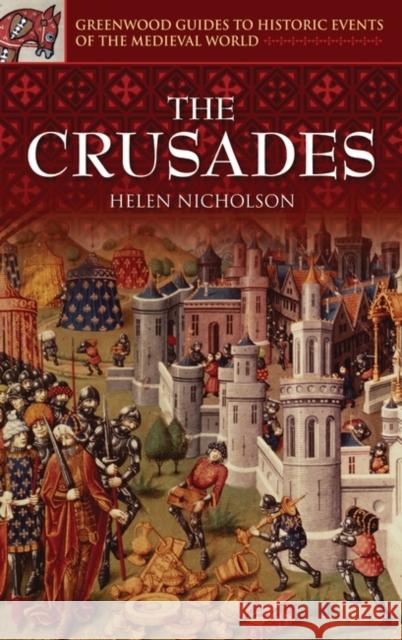The Crusades » książka
The Crusades
ISBN-13: 9780313326851 / Angielski / Twarda / 2004 / 248 str.
The Crusades of the Middle Ages were fought by Latin Christians against peoples who they believed were threatening the existence of their Christian faith. Some of these campaigns were against Muslims, some were against other Christians, and some were against pagans. Topically oriented chapters backed up by biographies, primary documents, maps, and illustrations make this an ideal introductory reference resource to this pivotal period in European medieval history.
The Crusades were distinctive because they were an invention of Latin Christians, they had their own symbols and traditions, and they were not one war but many, fought over several centuries. Thematic chapters provide an overview of the Crusades--why scholars believe they were fought, why they appealed to a very broad cross-section of Europe's population, and what motivated crusaders to dedicate years of their lives to the martial cause of Christendom. Among other interesting facts, readers will learn that to the Muslim states, the Christian Crusades were more of a distraction, as the Mongols from the East and schisms within occupied the bulk of their efforts, and that when it was convenient and advantageous--which was often--Christians and Muslims would ally with one another, or serve as mercenaries in each other's armies.
Covering the classic crusades to the Holy Lands and the taking and defending of Jerusalem, Nicholson also gives equal treatment to the just as important Requonquista of the Iberian peninsula, the subjugation and conversion of pagans in North-Western Europe, the Crusades against the Ottoman Turks in the Balkans, and the internal Crusades against the heretical Albigensians and Hussites. An annotated timeline provides readers with an easy-to-follow overview of the several centuries' worth of Crusading, and a half-dozen maps provide rapid and easy-to-read geographical and political information on the most important campaigns. Seventeen biographical sketches of key Christian, Muslim, Balkan, Spanish, and pagan figures and a dozen annotated primary documents breathe fresh life into the topic, providing students and readers with a new look at the period. A glossary is provided, as is an annotated bibliography and index.











